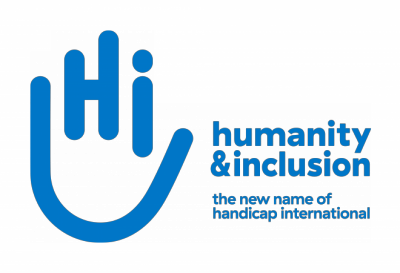Burkina Faso
In Burkina Faso, HI defends the rights of people with disabilities and responds to the urgent needs of people affected by violence and internally displaced people.

In Burkina Faso, Humanity & Inclusion takes care of Kotime (standard wheelchair, rehabilitation, inclusion). | © Olivier Czar Katona / HI
Actions in process
HI is helping to establish a regional functional rehabilitation network and to integrate this network into the national health system. Our team trains health and rehabilitation professionals and work with health centres and organisations of people with disabilities to enable thousands of users to benefit from specialised care.
Through its inclusive education project, HI helps children with disabilities to access and pursue primary and post-primary education and vocational training, guaranteeing the quality of the teaching. To ensure the sustainability of this project, our teams train and raise awareness among people working in the disability and inclusive education sectors. They also work with local actors to develop and strengthen advocacy for lasting change, with the aim of ensuring that the challenges of inclusive education are taken into account in Burkina Faso's education policies.
HI is also responding to the needs of households facing insecurity, particularly food insecurity, in the Sahel region, with a project for strengthening the resilience and social cohesion of vulnerable populations in the cross-border regions of Burkina Faso (Sahel region) and Niger (Tillabery region).
HI's response to humanitarian needs is intended to support vulnerable populations who have suffered shock or trauma as a result of the crisis, including students and teachers. It includes mental health and psychosocial support sessions, as well as broader awareness-raising campaigns on psychological first aid for communities and health workers. In addition, the programme is responding to the basic needs of people in Soum province, the second most affected province by population displacement.
HI is also a member of the consortium running the "Rapid Response Mechanism" project in Burkina Faso, designed to alert and provide information on the needs of displaced populations. In addition, the programme is developing logistics expertise in Burkina Faso to promote humanitarian access to very remote or isolated areas, train local actors in logistics and support other NGOs in the delivery of humanitarian goods.
HI is running a project aimed at strengthening the capacities of humanitarian response actors to make their projects more inclusive of older people and people with disabilities. HI raises awareness and trains these actors in the specific needs of certain population groups to ensure that they are taken into account in aid responses. Our teams also work with organisations of people with disabilities and young people, as well as with community members, to strengthen social cohesion, respect for diversity and inclusion.
Areas of intervention
concretely
Situation of the country

Burkina Faso is a country where over 40% of the population lives below the poverty line. The most vulnerable lack resources, they have poor access to healthcare and are suffering the consequences of conflicts between armed groups. The literacy rate in the country is low.
Burkina Faso is a Sahelian country with very low income and limited natural resources. It is landlocked and so relies heavily on trade with the coastal countries of the Gulf of Guinea and Mali. Its economy is based on agriculture (80%), although gold exports have been growing in recent years. Purchasing power, however, is declining.
People with disabilities participate little in the country’s economic and social life. It is difficult for them to fully access such basic rights as education, vocational training and employment. Most of them find themselves in situations of exclusion and extreme poverty.
Burkina Faso has been hit hard by insecurity since 2015 due to conflicts between the State and non-state armed groups, most of which claim affiliation to al-Qaeda or the Islamic State. The country is also experiencing a political crisis, with a succession of coups d'état (24 January 2022 and 30 September 2022).
The number HI staff: 179
Programmed opened in: 1991
















 The difference you make
The difference you make
 Financials
Financials
 Make a regular gift
Make a regular gift


